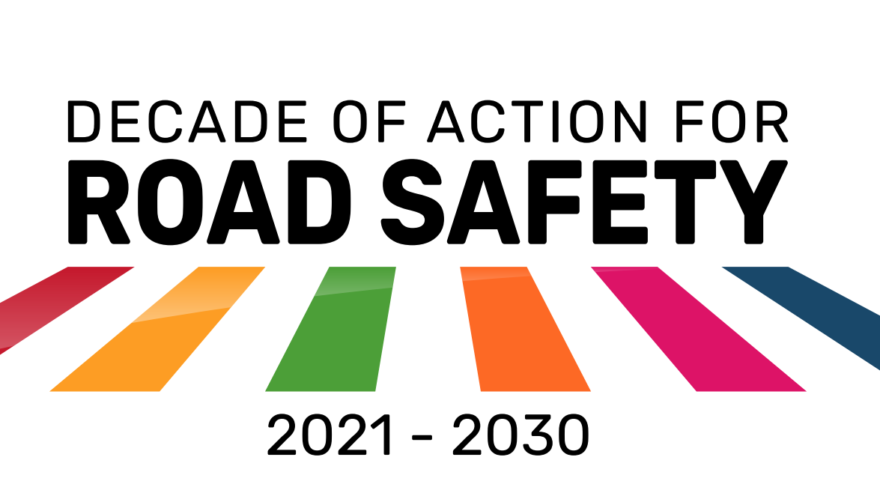
Launching of the Global Plan of Action for the Second Decade of Action
Today - October 28, 2021 - the Global Plan for the Decade of Action for Road Safety 2021-2030 is launched. It marks an important milestone in the ongoing effort to halve deaths and injuries on roads and highways by 2030.
Geneva 28 October 2021
The right to safe mobility places people at the center of the global plan and sets out a series of strategies that will guide the achievement of the common goal of the 2021-2030 Decade to achieve at least a 50% reduction in road traffic injuries and fatalities over that period.
The international community accepts that this is a cross-cutting issue that is closely linked to the Sustainable Development Goals, environmental protection, quality of life and health of citizens, social rights and citizen engagement.
The Global Plan is the model for governments to achieve this goal and therefore we call on our governments to:
– Implement evidence-based actions recommended in the Global Plan, addressing speed first – including 30 km/h limits in people-vehicle coexistence zones – adopting the Safe System approach that places people at the heart of the road system.
– Commit the necessary resources, including funding and political influence, to achieve the objectives and train responders for post-crash response. Nothing will be achieved without mobilizing sufficient resources to implement evidence-based actions.
– Involve NGOs in road safety decision-making: so that people’s voices and their right to be safe become a central consideration in mobility policy, design and implementation.
In the framework of the XXIII Mediterranean Road Safety Conference held on June 22nd at the Official College of Journalists of Catalonia, P(A)T went ahead with the organization of the conference “The challenges of the Second Decade of Action for Road Safety”.
Here you can see the opening panel with the participation of Matthew Baldwing, coordinator for Road Safety and Sustainable Mobility of the European Commission and Etienne Krug, Belgian physician and epidemiologist, director of the Department of Social Determinants of Health of the WHO in Geneva and chair of the United Nations Road Safety Collaboration Group. The panel was moderated by Eugenia Doménech, honorary president of P(A)T and former Director of the Servei Català de Trànsit (Catalan Traffic Service).
Traffic accidents are increasing, hence the need to put the debate on Road Safety back at the center of the public agenda. Vicente Sanchez, President of P(A)T demanded at the inauguration to include Article 10 of the Stockholm Declaration in the drafting of the Global Road Safety Action Plan for the Second Decade of Action which called for ensuring timely access to high quality emergency and long-term medical care services for the injured and recognizing that an effective post-crash response also includes mental, social and legal support for victims, survivors and families.
Although the Plan includes post-accident response, it has left out psychological care, so important for mental health and for recovering the quality of life of victims. However, we are glad that they have listened to the victims’ associations that have been demanding for a long time the need for an investigation with all the guarantees. In this sense, the plan calls for the investigation of crashes with serious and fatal victims in order to support prevention strategies and provide an effective judicial response to the victims and provide an effective judicial response to victims and their families.
Here is the full Plan:
https://www.who.int/es/publications/m/item/global-plan-for-the-decade-of-action-for-road-safety-2021-2030?mc_cid=1539d9881c&mc_eid=eeb0eec369












